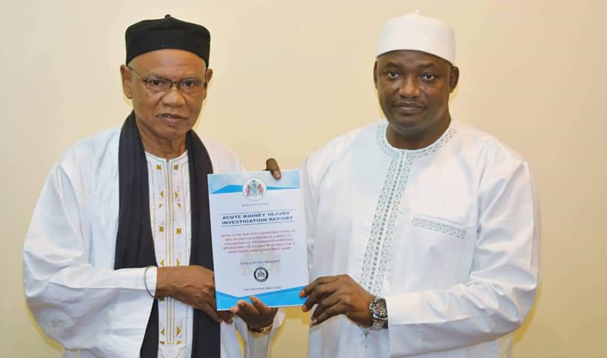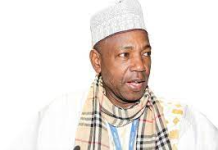By Nelson Manneh
The Presidential Taskforce on Acute Kidney Injury (AKI) has recommended government to appoint a legal officer who would provide guidance and advice to the Medicines Control Agency (MCA).
The report also recommended that the Office of the Secretary-General review and address the issue of registered and licensed pharmacists who are currently employed by the Government, while doubling as supervising pharmacists for private companies.
“The Government of The Gambia through the Ministry of Justice should forthwith explore the possibility of instituting legal action against Atlantic Pharmaceuticals, Maiden Pharmaceuticals, and the Government of India, to seek redress on behalf of the families of the victims of the AKI outbreak,” the report recommended.
On the 26 of July 2022, the Epidemiology and Disease Control Unit (EDC) received a report from Professor Muoneke Uzoamaka Vivian, a Paediatric Nephrologist at the Edward Francis Small Teaching Hospital (EFSTH) through the Director of Health Services at the Ministry of Health. The report indicated a sudden increase in the number of AKI cases among children between the ages of two months to five years old after some patients were referred to EFSTH after initially being admitted and attended to at Bundung Maternity Hospital, Brikama District Hospital and Kanifing General Hospital respectively. The referrals were necessary as AKI was not defined and cases, together with mortality rates, were rapidly increasing.
After careful evaluation of all cases referred to the EFSTH, it reports, a case definition was developed and the hospital continued to receive additional patients and research on the matter which was conducted in tandem. The index case was traced to 26 July 2022, and by the 2nd of November 2022, 83 cases of AKI had been reported with 70 deaths confirmed (Crude Fatality Rate 85%). About 72% of the children were under the age of two years old.
Out of the country’s seven health regions, cases contaminated from six in which only the North Bank East Region recorded 0 cases. Clinical features among cases include fever (81% of cases), vomiting (61% of cases), diarrhea (51% of cases), and cough (10% of cases). The average duration of illness was nine days with an overall range of 5 – 18 days. The AKI report outlined that on 26 December 2014, the President alongside the National Assembly enacted an Act to regulate the quality and safety of medicines and related products and for connected matters herein referred to as The Medicines and Related Products Act, 2014.
“Section 3, Part ll of the aforementioned Act creates the Medicines Control Agency’ which shall be a body corporate with perpetual succession and may sue and be sued in its corporate name; and pursuant to Section 4 of the said Act, the agency shall be the regulatory body for all medicines related product,” the Taskforce report stated.
The report added that a Governing Board was created under the Act, to ensure the proper and effective performance of the Agency.
AKI refers to an abrupt decrease in the kidney’s ability to function, and the condition is one that manifests rapidly and usually worsens within a few hours or days. AKI causes a build-up of waste production in the blood and makes it hard for the kidneys to keep the right balance of fluid in the body. Standard symptoms include oliguria or anuria, enema, confusion, nausea, diarrhea, shortness of breath, chest pain, and fever.





















